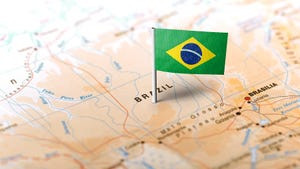South Korea Bans Antibiotics in Feed
In July, South Korea vows to start strictly enforcing a ban on the use of antibiotic growth promoters (AGPs) in animal feed, according to the Ministry for Food, Agriculture, Forestry and Fisheries (MAFF).
June 7, 2011

Five years after the European Union (EU) banned antibiotics in animal feed, South Korea is set to become the first Asian country to follow suit.
In July, South Korea vows to start strictly enforcing a ban on the use of antibiotic growth promoters (AGPs) in animal feed, according to the Ministry for Food, Agriculture, Forestry and Fisheries (MAFF).
The EU banned all subtherapeutic AGPs in animal feed in January 2006, following individual nation bans in Sweden (’86), Denmark (’98) and Switzerland (’99).
The purpose of the bans is to preserve the effectiveness of some antibiotics used to treat infections in humans. The U.S. Food and Drug Administration first proposed a ban on antibiotics in animal feed in 1977, but has struggled to find a definitive link connecting the use of AGPs in livestock and poultry and antibiotic resistance resulting from the use of those antimicrobials in human medicine.
Since 2005, South Korea has been gradually reducing the 44 types of antibiotics it has allowed to be mixed with feed as the scientific community has warned about the impact of feeding AGPs.
“The government will impose a total ban on the addition of antibiotics to animal feed by revising rules governing animal food,” the MAFF announcement said. “The new rules will enhance the safety of local meat and dairy products.”
South Korean veterinarians will still be permitted to treat sick animals with antibiotics. But once the ban goes into effect, the government will monitor closely for antibiotic residues in feed and impose strict penalties for violators.
You May Also Like



